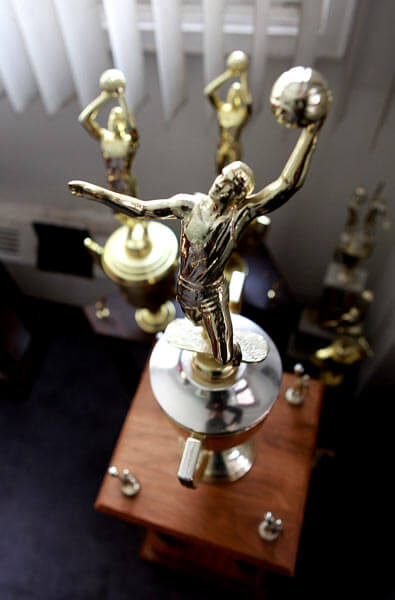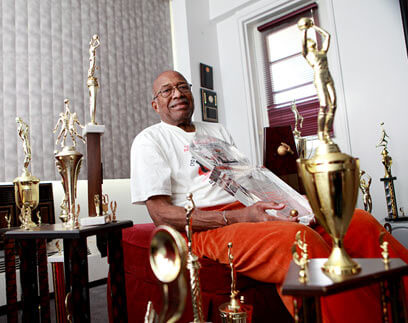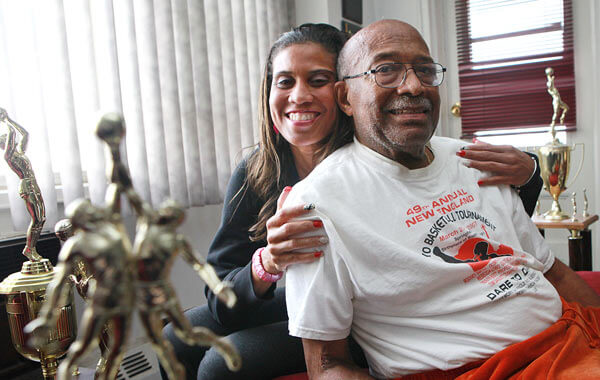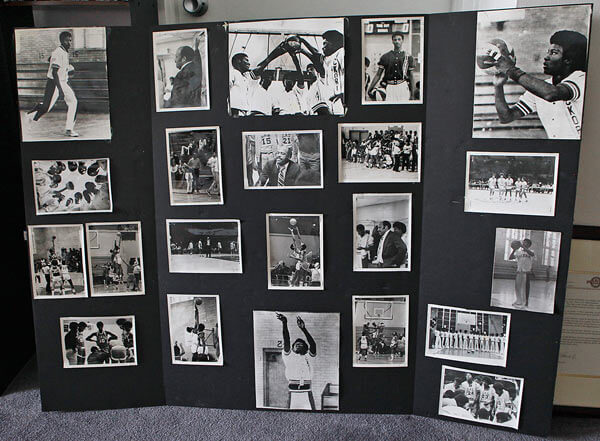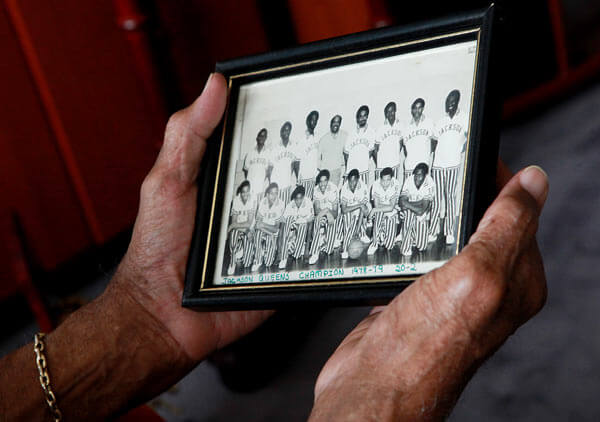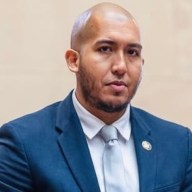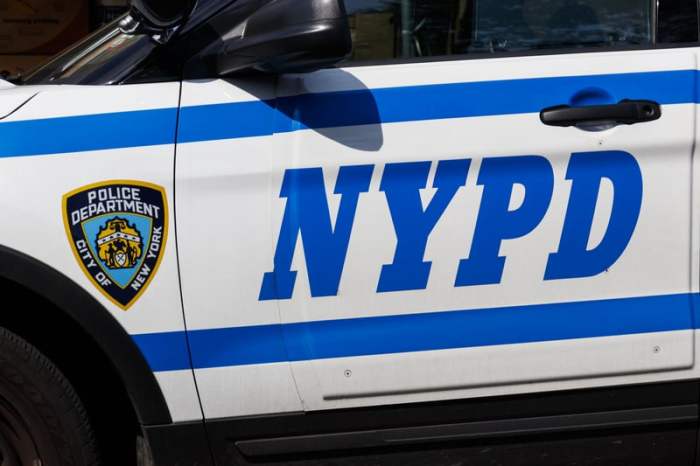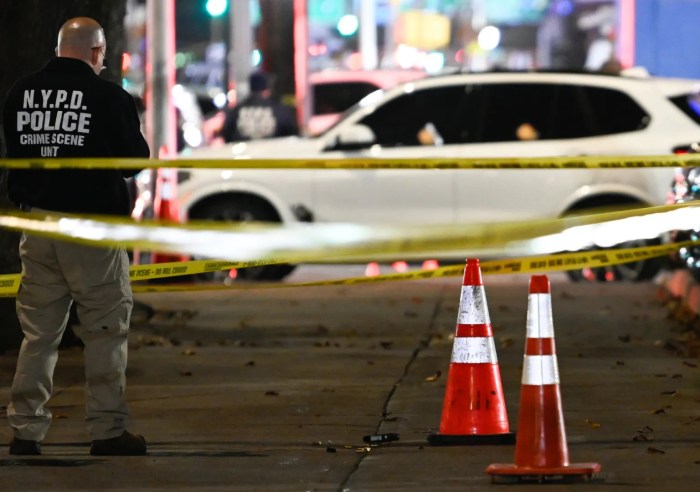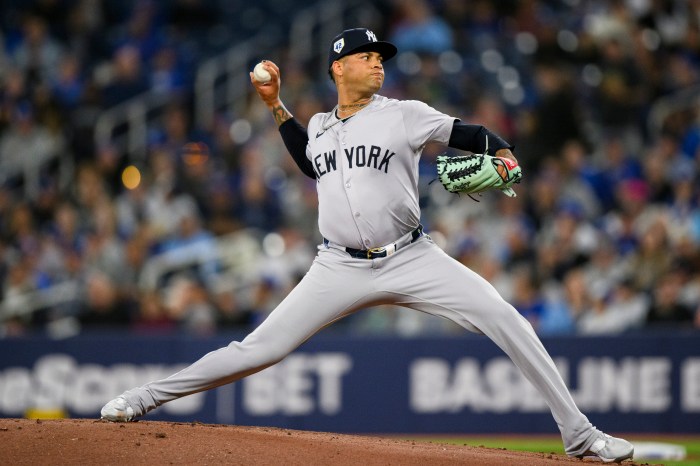By Joseph Staszewski
Once Charles Granby lost his day-to-day passion for coaching, he knew his time on the bench was coming to an end.
That’s the way the legendary Campus Magnet boys’ basketball coach felt at times last season before deciding this year will be the last of his 45-year career at the school. He started there as a physical education teacher when it was Andrew Jackson and has been there coaching ever since.
“I didn’t feel like practicing anymore,” the 79-year-old Granby said. “I didn’t feel like doing certain things. If there were a game every day, it would be different.”
Granby, who retired from teaching in 1996, never lost his love of basketball, but the time to be invested in CPR classes, first aid courses and concussion training that are required of a PSAL coach became too much. No successor has been named, but Granby is at peace with his decision.
“He feels like he’s done what he’s needed to do and he just says it’s time for the next person to step in,” his daughter Robyn Granby-Poole said.
Whoever takes over has big shoes to fill.
Granby played collegiately at nationally ranked Bradley University and won the National Invitational Tournament title in 1960 alongside Chet Walker, a member of the Naismith Hall of Fame.
The understated Granby went on to become the winningest coach in PSAL history with 722 victories. He has the second most all-time wins in New York City and is its second-longest tenured coach behind Molloy’s Jack Curran, who died last year after 55 seasons.
His teams won 24 division titles, seven Queens championships and a city crown in 1985 led by guard Boo Harvey, who played at St. John’s. He is a member of the New York state and city basketball Hall of Fames.
“I think what he’s meant to Queens basketball is immeasurable,” Campus Magnet assistant Coach Ken Vickers said.
“He carried the torch for Queens basketball,” Vickers added about the school’s long-standing dominance in the borough’s basketball community before Cardozo’s recent success. “Andrew Jackson was what everybody knew.”
Granby’s legacy goes far beyond his on-court success. He never relished the spotlight or flaunted his accomplishments. His perspective on what it means to be a coach was formed early on in his career, when a former player told Granby how the coach’s emphasis on a college education helped to shape that player’s life.
“He thought he might have wound up in jail or something like that, and the kid started crying,” Granby said. “From that day on, I looked at it in a different perspective.”
He became more concerned with making sure his players were set up for success after their high school careers were over. College became as much the goal as titles.
There have been numerous success stories. Newly elected Brooklyn City Councilman Robert Cornegy Jr. played for Granby and current Orlando Magic forward Kyle O’Quinn was pushed by Granby to get serious about basketball.
“A guy like him always had his eyes focused on kids who needed help when we didn’t know we needed it,” said former player Eddie Harris, a 1979 graduate. “When you have someone like that, it’s very special.”
Added basketball talent evaluator Tom Konchalski, “You have to admire anyone who has worked with kids for 45 years.”
His message has stayed the same. Granby still gives his players the “Ugly Life” speech about the disadvantages of not having a college degree. He has helped inner city kids work toward a better life his entire career.
“He meant so much to the community, not only basketball-wise,” Campus Magnet senior captain Nohah Vickers, Ken’s son, said. “He was a model to everybody.”
The inexperienced Bulldogs have struggled this season with a 3-9 record in league play. Nohah Vickers and his teammates wish they could send him out with a better year.
“There is definitely an urgency to win right away,” he said.
Granby said leaving coaching will allow him to travel more. He can head to the Caribbean or visit family when it’s cold and snowy in New York. His time to leave coaching has come.
“I didn’t plan to stay for 45 years coaching the team, but it just evolved,” Granby said. “I just felt like it was time for me to get out now. You just feel like it is time to go.”

